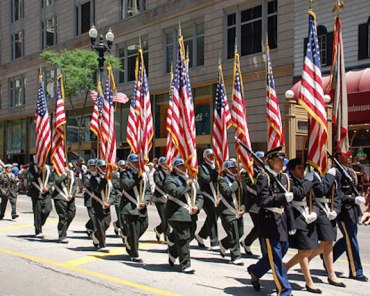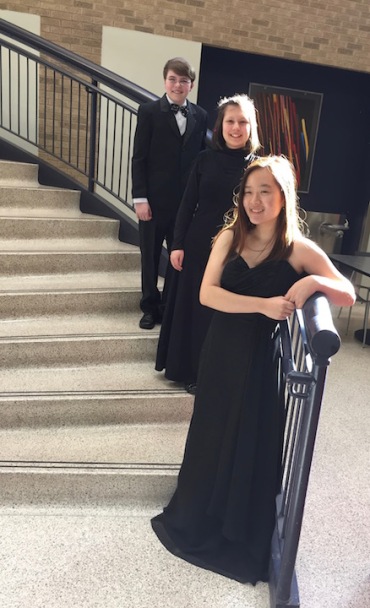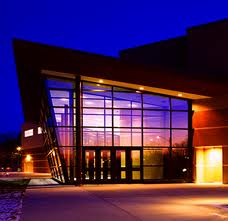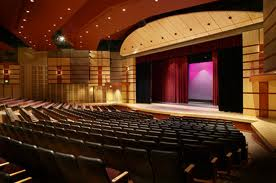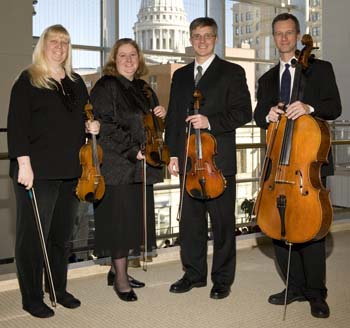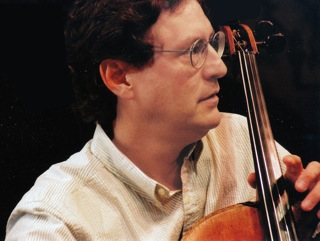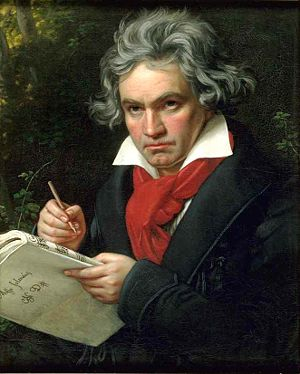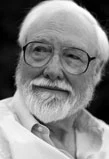The Well-Tempered Ear
Classical music education: Let us now praise K-12 music teachers as an elementary music teacher in Whitewater wins an award for Excellence in Music Education
1 Comment
By Jacob Stockinger
The Memorial Day holiday is over and now we start winding down the academic year in public and private K-12 schools.
That makes it a great time to catch up with news that reminds us how important music education and education in the arts, humanities and liberal arts, can be to the development of the whole child or young person and to lifelong learning.
It helps us to realize that, despite what many legislators say, education should never be a trade school that provides vocational education or career preparation, and that education is not always all about the so-called STEM subjects – science, technology, engineering and mathematics – deemed so useful to business, industry and individual wealth accumulation. (You can hear educator Richard Gill give a popular TED Talk about the value of music education in the YouTube video at the bottom.)
So here is open important reminder via a press release:
The Madison Symphony Orchestra (MSO) and Ward-Brodt Music have awarded their 2016 Award for Excellence in Music Education to Whitewater music teacher Christine Hayes of Lincoln/LINCS Elementary School at a choir concert for grades 2-5.
The presentation was held on Tuesday, May 17, in the Whitewater High School Auditorium.
This annual award celebrates an educator who displays leadership, passion, dedication, and innovation within the music classroom, positively affecting the lives of his or her students and the community at large, and is designated for one outstanding music educator in southern Wisconsin.
The MSO and Ward-Brodt developed the award to recognize that cultivating the artistic growth of young students is one of the unique and challenging jobs for teachers in Wisconsin.
Christine Hayes (below) has dedicated her life to enriching young people and the communities around her through music education. In her 29 years of working in the Whitewater Unified School District and by contributing to music in her community in a variety of ways, she’s changed the lives of many students and her colleagues. She believes that “inspiring and challenging children today will lead to their embracing music for their lifetime.”
In the nominations by parents, teaching colleagues, church members, and school administrators, Hayes was described as “a power house of creative energy” who “encourages children to express their feelings through music.”
Her students at Lincoln/LINCS Elementary School, where she has spent the last 19 years, can take part in diverse musical experiences including world drumming, playing guitar and recorder, composing music, and singing in many languages. All of these experiences for children make her classroom “an exciting, musical adventure.”
She has also taught elementary and middle school band, middle school guitar, keyboards and general music.
A former colleague who nominated her wrote, “Mrs. Hayes leads by example by continuing to find ways to improve as an educator by constantly pursuing her own education. She recently completed a trip to Ghana in order to learn about their musical culture.”
In her own words, Hayes said, “My goal is for each student to imagine themselves in musical experiences, provide them authentic learning situations where they create, respond, perform and connect, then collaborate with those students to apply their knowledge and skills to discover their personal musical path.”
Outside the classroom, she founded an after-school orchestra where she volunteers her time as coordinator allowing children to enrich their music education. Currently in its eighth year, the Whitewater Unified School District Strings Program has touched the lives of many school children, with 72 students participating this past year, ranging from fourth grade to high school.
She is also a music leader in her community. Hayes has been serving as the Choir Director for the First United Methodist Church in Whitewater for the past 20 years and served on the board of directors of the Whitewater Arts Alliance for five years.
In her free time she plays clarinet with the University of Wisconsin-Whitewater Community Band.
Hayes has also been deeply involved with developing Wisconsin state standards for music education by serving on the writing committee for the National Common Core Music Standards from 2012 to 2014.
In 2015, she was asked to join the Steering Committee for the Wisconsin Music Educators Association (WMEA), continuing her work to improve music education in Wisconsin. Hayes has served as the Chair of the NAfME National Council for General Music Education and as a President of the WMEA.
She earned her bachelor’s degree in music education from Central Michigan University and a master’s degree in music from Northwestern University. She currently resides in Whitewater, Wisconsin.
In 2007 she won the Wal-Mart Wisconsin Teacher of the Year award and in 2008 the Herb Kohl Fellowship Award.
Hayes will be awarded a commemorative plaque and a $500 prize. These prizes have been made possible through the generosity of Ward-Brodt Music of Madison, Wisconsin. To be qualified for the award, a nominee must have taught within a 75-mile radius of Madison in a public or private K-12 school and instructed a band, orchestra, choir or general music course.
Colleagues, current or former students, parents of students, or friends were eligible to nominate a music educator for the award.
The review panel consisted of representatives from public and private school administration, veteran teachers, university staff and knowledgeable community members. (For the sake of full disclosure, The Ear sat on the committee that reviewed the many impressive nominations and decided the winner of the award.)
For more information regarding the Award for Excellence in Music Education, visit http://madisonsymphony.org/award.
Tags: academic year, Americans for the Arts, Art, Arts, award, bachelor's, band, Business, Central Michigan University, Choir, choral music, clarinet, Classical music, colleague, common core, community, composing, drum, Education, elementary school, engineering, feelings, friend, general music, Ghana, God, guitar, Herb Kohl, high school, humanities, industry, Jacob Stockinger, K-12, Keyboard, language, liberal arts, Lincoln, Madison, Madison Symphony Orchestra, master's, math, mathematics, Memorial Day, Middle school, Music, Music education, Northwestern University, Orchestra, Parent, Piano, recorder, school year, science, steering committee, STEM, Student, symphony, Teacher, technology, TED Talk, trade school, United Methodist Church, United States, university, University of Wisconsin-Madison School of Music, University of Wisconsin–Madison, UW-Whitewater, vocal music, vocational education, volunteer, Wal-Mart, Ward-Brodt, wealth, Whitewater Arts Alliance, Wisconsin Music Educators Association, world drumming, young people, YouTube
Classical music: Today is Memorial Day 2016. What what classical music would you play? And should civilians be included and honored along with the military?
1 Comment
By Jacob Stockinger
Today is Memorial Day 2016, originally called Decoration Day because people placed flowers on the graves of soldiers who had died or been killed.
But as Decoration Day turned into Memorial Day to honor all military personnel, including the living, the holiday has also become the occasion for marches and parades, for picnics and start-of-summer celebrations.
What music would you play to best honor the occasion and those who served, were wounded or fell?
The Ear has looked for new compilations.
So far, the best one remains, after five years, one that appeared on the Deceptive Cadence blog for National Public Radio or NPR:
http://www.npr.org/templates/story/story.php?storyId=104341851
It comes with names and audio clips.
What pieces of classical music would you choose?
But here is a more controversial question: Should we also include and honor civilians on Memorial Day?
Modern wars — World War II, the Korean War, the Vietnam War, the Gulf War, the invasion of Iraq and Afghanistan — have turned countless civilians into fatalities and casualties. In fact, in many cases, civilian casualties of war far outnumber military ones.
It is inarguable: Modern wars have drafted or conscripted or forced civilians into action, and not just into the military.
The Ear does not think that honoring civilians who were injured or fell in the wars detracts from honoring veterans and the members of the military who did so.
Maybe civilians should even have their own day to mark and honor their sacrifices?
What do you think?
The Ear wants to hear.
Tags: Armed Forces Day, cemetery, civilian, Decoration Day, grave, Gulf War, Korean War, marches, Memorial Day, military, Military personnel, National Public Radio, NPR, parade, picnic, summer, United States, United States Armed Forces, Veteran, Vietnam, Vietnam War, World War II
Classical music: The Green Lake Festival of Music starts soon with its chamber music camp for young students. Here is a schedule of events, including many FREE ones.
Leave a Comment
By Jacob Stockinger
The Green Lake Festival of Music, which attracts many listeners from the Madison area, has sent the following announcement:
“Music: Soul to the Universe” is the theme of Green Lake Festival of Music’s 2016 season. It includes concerts in styles ranging from classical chamber music to vocalists from the world’s stages—a variety of music that will please many of Green Lake area visitors looking for reasonably priced, high-quality entertainment.
Please visit www.greenlakefestival.org for the most current calendar of events or to purchase tickets. Tickets are also available by calling the office at 920-748-9398. You can also stop by one of the following ticket outlets: Green Lake Bank (Green Lake) and Ripon Drug (Ripon).
The concert season opens with young rising stars Trio Lago Verde (below top) in a FREE Season Preview Concert, sponsored by Lynn Grout-Paul in memory of Gerald Reed Grout, on Friday, June 10 at 7:30 p.m. in the historic Thrasher Opera House (below) in Green Lake.
The trio — Italian for the Green Lake Trio — attended the Green Lake Festival Chamber Music Camp in 2015 and has recently performed on the “From the Top” program on NPR or National Public Radio. Visit our website to find a link to listen to their superb performance.
On Sunday, June 12, at the Green Lake Conference Center near Green Lake, the Green Lake Chamber Players, made up of members of the chamber camp faculty, open the 18th annual Green Lake Music Festival Chamber Music Camp, as string and piano students from nine states, ages 11 to 20, convene at the Green Lake Conference Center for two weeks of stimulating music making, along with just plain fun.
The daily schedule includes coaching sessions by Thomas Rosenberg (director of the Fischoff National Chamber Music Competition, cellist and the Camp’s Artistic Director); Samantha George, associate professor of violin at Lawrence Conservatory of Music in Appleton, Wisconsin; Karen Kim, Grammy Award-winning violinist; violist Deborah Barrett-Price, artistic director of the Chamber Music Connection, Inc.; Renee Skerik, instructor of viola at the Interlochen Arts Academy; Andrew Armstrong from the Amelia Piano Trio; James Howsmon, professor of Instrumental Accompanying at Oberlin College Conservatory; and guest artists, including the Calidore String Quartet (below).
Seven master classes by the faculty and the Calidore String Quartet are open to the public and FREE of charge. Students will attend four festival concerts, and perform a variety of community service engagements, performing at nursing homes, service clubs, and libraries. (You can hear the Calidor String Quartet playing Franz Schubert‘s “Quartettsatz” or Quartet Movement, D. 703, in the YouTube video at the bottom.)
The program includes two public concerts – a Chamber Camp Student Recital on Saturday, June 18, at the Green Lake Conference Center and the final Chamber Music Celebration at Rodman Center for the Arts (below) at Ripon College, on Saturday, June 25.
The Calidore String Quartet is currently artists-in-residence and visiting faculty at Stony Brook University (SUNY) and was appointed to the prestigious roster of the Chamber Music Society of Lincoln Center Two for the 2016- 2019 seasons. Described as “the epitome of confidence and finesse” (Gramophone Magazine) and “a miracle of unified thought” (La Presse, Montreal), the Calidore String Quartet has established an international reputation for its informed, polished, and passionate performances.
The performances during the camp will be Sunday, June 12; Friday, June 17, with the Green Lake Chamber Players; and the Calidore String Quartet performs Monday, June 20 and Thursday, June 23. All of these performances will be held at the Green Lake Conference Center (below top, in a photo by Delmar Miller) in Pillsbury Hall (below bottom).
The Green Lake Chamber Music Camp and concert series is funded in part by the Arts Midwest Touring Arts Fund, a program of Arts Midwest, funded by the National Endowment for the Arts, with additional funding from the Wisconsin Arts Board, the Crane Group and General Mills Foundations. Other funding comes from the Horicon Bank, Oshkosh Area Community Foundation, and private/corporate donations. Wisconsin Public Radio provides promotional support.
Tags: Appleton, Artistic director, Arts, Arts Midwest, Calidor String Quartet, camp, Cello, Chamber music, Chamber Music Society of Lincoln Center, Classical music, college, Europe, festival, Fischoff National Chamber Music Competition, Franz Schubert, From The Top, Grammy, Gramophone, Green Lake Festival of Music, Horicon, Interlochen, Jacob Stockinger, Lawrence University, Lawrence University Conservatory of Music, master class, music camp, National Endowment for the Arts, National Public Radio, NEA, New York, NPR, Oberlin College, opera, Oshkosh, Pillsbury, preview, Ripon, Ripon College, Schubert, singer, song, soul, Stony Brook University, String quartet, Trio Lago Verde, United States, universe, vocal music, vocalist, Wisconsin Arts Board, YouTube
Classical music: Local composer and UW-Madison alumnus Pat Doty talks about his Tuba Concerto, which he will premiere with the Middleton Community Orchestra on Wednesday night.
1 Comment
By Jacob Stockinger
The mostly amateur Middleton Community Orchestra (MCO, below), which has gotten better and better and rarely disappoints even in ambitious and difficult music, will wind up its fifth anniversary season this coming Wednesday night with a brass extravaganza.
The performance is at 7:30 p.m. in the modern, comfortable and spacious Middleton Performing Arts Center (below) that is attached to Middleton High School.
Tickets are $10; students get in for FREE.
Advance tickets are available at Willy Street Coop West. The Box office opens at 6:30 p.m. and the doors open at 7 p.m.
The program includes The “Capriccio Italienne” by Peter Tchaikovsky; the Carnival Overture by Antonin Dvorak; the Horn Concerto by Reinhold Glière with soloist Paul Litterio (below); and the world premiere of the Tuba Concerto by University of Wisconsin-Madison School of Music graduate Pat Doty, who will also be the soloist.
Steve Kurr (below) will conduct.
Here is a link with more information about the MCO and how to join it and support it:
http://www.middletoncommunityorchestra.org/home
Composer and tuba performer Pat Doty (below, in a photo by Steven Thompson) answered an email Q&A for The Ear:
Can you tell us briefly about your background, including your education and performance history?
I grew up in Mount Horeb, Wisconsin. I hold a master’s degree in tuba performance from the University of Wisconsin–Madison, where I was a member of the University of Wisconsin Marching Band for four years, including three trips to the Rose Bowl.
While at the UW-Madison, I performed with the Wind Ensemble (including a performance at Carnegie Hall in New York City), Concert Band, Tuba and Euphonium Ensemble, the Middleton Community Orchestra, Low Brass Ensemble, 4BA Tuba Quartet, Madrigal Singers and the Lumberjack Brass Quintet.
My solo tuba performance credits range from solo recitals to guest appearances at schools across southern Wisconsin.
When and how did you start composing? What works have you written in the past?
I first started writing music when I was in high school and I was very interested in singer/songwriters like Elton John and Billy Joel. During my time at Mount Horeb High School, I wrote more than 500 songs, most of which never made it past the grand piano in the living room.
When I started graduate school, the tuba studio at UW-Madison was treated to a guest performance by Øystein Baadsvik, who really inspired me to start writing for tuba. I was also heavily influenced by my undergraduate professor, John Stevens (below).
My catalogue now includes dozens of works for solo tuba, chamber ensembles and large ensembles. It probably comes as no surprise that I compose rather frequently for tuba quartet and brass quintet.
Additionally, I write a great deal of music for my wife Brigid, who holds a degree in vocal performance from UW-Madison, to sing with me accompanying her on the piano.(You can hear them in a YouTube video at the bottom in a song by Pat Doty.)
How would you describe your compositional style — tonal or atonal, accessible, melodic and so forth?
My music is tonal, accessible, melodic and so forth. I jest, but I really do strive to write music that is very fun, beautiful and accessible to a wide-ranging audience.
My major influences are not famous classical composers, but rather those musicians who I listened to when I was growing up.
For example, I draw a lot from pop music and classic rock. I know that might seem like an odd connection — pop music and the tuba — but I have always fallen back on my vocal training to instruct my tuba playing, and I see no reason why the same connection shouldn’t exist in my compositions.
To put it simply, I approach writing for solo tuba (with any sort of accompaniment) in quite the same way that I approach writing a song at the piano. I always have a poem, an idea, something in mind that inspires me. For example, my tuba duet “Mendota” is based on a poem that I wrote for a pop song, but it works beautifully for an instrumental piece.
What would you like the public to know about your new Tuba Concerto, which you will perform and premiere with the Middleton Community Orchestra?
First and foremost, my Tuba Concerto doesn’t take itself too seriously. That is a recurring theme in my music. I am very excited for the premiere with the Middleton Community Orchestra, which is sounding great by the way, and I really hope that people have as much fun and find as much joy in listening as I do playing this music.
A couple of interesting quirks to note are that there is a large, essential euphonium part in this piece, and that there is a marimba solo in the third movement. These are both things that, I think it is safe to say, are not particularly common in orchestral music.
I used a euphonium (below) and no tuba in the orchestra because I want this to be a piece that an orchestra could use to feature their own tubist if they so choose. Also, I am friends with quite a few euphonium players.
What else would you like to say?
First, I would like to say thank you to the Middleton Community Orchestra for premiering my Tuba Concerto. I am very much looking forward to the performance for many reasons, not the least of which is that this will be my first chance to present my compositions to a broad classical music audience.
I would also like to mention my new record label, Merp Entertainment, which I co-founded with my wife Brigid last year. Our debut CD “Dare to Entertain” has found national success, particularly on the internet streaming service Spotify, where it has amassed more than 3 million song streams to date.
For more information about this, please visit www.merpentertainment.com. For more information about me, please visit www.patdoty.com.
Tags: accessible, amateur, Arts, Baadevik, Billy Joel, brass, Brass quintet, Capriccio italienne, Carnegie Hall, Carnival Overture, Chamber music, classic rock, Classical music, Compact Disc, compose, composer, concerto, Dvorak, Elton John, Euphonium, Gliere, Horn, John Stevens, Madison, marimba, melodic, melody, Middleton Community Orchestra, Mount Horeb, Music, New York City, Orchestra, Pat Doty, Paul Litterio, Peter Ilyich Tchaikovsky, pop, pop music, Reinhold Gliere, Rock, solo, soloist, song, Steve Kurr, symphony, tonal, tone, Tuba, United States, University of Wisconsin-Madison School of Music, University of Wisconsin–Madison, Wisconsin, YouTube
Classical music: Which are the most famous and most popular string quartets? And which ones are your favorites?
8 Comments
By Jacob Stockinger
Does The Ear ever love chamber music!
And it has been a good few days for him and for other Madison fans of string quartets.
On Saturday night, The Ear heard the Ancora String Quartet (below) in outstanding performances of the “Dissonance” Quartet by Wolfgang Amadeus Mozart and the late String Quartet No. 13 in A Minor, “Rosamunde,” by Franz Schubert.
Then on Monday night, the Ear heard the terrific Rhapsodie Quartet (below top, in a photo by Greg Anderson), made up of players in the Madison Symphony Orchestra, perform the “American” String Quartet by Antonin Dvorak followed by the sublime and profound Cello Quintet by Franz Schubert. UW-Madison and Pro Arte Quartet cellist Parry Karp (below bottom) sat in as the extra cellist.
At the Ancora concert, cellist Benjamin Whitcomb, who teaches at the University of Wisconsin-Whitewater, made the case that Mozart’s “Dissonance” Quartet is well known for its apt nickname and is probably the best known or most popular of Mozart’s string quartets.
That got The Ear to thinking:
What are the most well-known and most popular string quartets?
And which string quartets are your favorites that you would recommend to other chamber music fans?
The Ear drew up a list of candidates of the first honor of being well-known.
He suspects that the “Emperor” Quartet — with its famous and infamous slow movement theme that was turned from an homage to the Austrian emperor into an anthem for Nazi Germany — by Franz Joseph Haydn, the “Death and the Maiden” Quartet of Schubert and the “American” Quartet of Dvorak all rival or surpass the public reputation of the Mozart’s “Dissonance,” although that one is certainly and deservedly famous to the general public.
As to The Ear’s favorite quartets: The Ear is especially partial to the six early Op. 18 string quartets by Ludwig van Beethoven (below), which often take a back seat to the same composer’s middle quartets and late quartets. But of the famous last ones, The Ear loves the very last one, Op. 135, with its return to classical structure and clarity.
He also loves all of the Op. 76 string quartets by Haydn (below top) and is especially partial to the “Sunrise” and the “Quinten” or “Fifths” quartets. He also loves Haydn’s earlier Op. 20 “Sun” quartets; and all six string quartets that Mozart (below bottom) composed for and dedicated to Haydn, generally considered the father or the modern string quartet who also played string quartets with himself on violin and Mozart on viola.
The Ear likes Schubert’s “Death and the Maiden” well enough, but he is always blown away by Schubert’s last quartet in G major, which was used as a soundtrack in Woody Allen’s great movie “Crimes and Misdemeanors.”
He also loves the lyrical quartets on Dvorak (below), especially the Op. 51 “Slavonic” as well as the “American.” (You can hear the opening of the “Slavonic” String Quartet in a YouTube video at the bottom.)
As for Johannes Brahms, The Ear prefers the string quintets and string sextets to the string quartets.
Francophile that he is, The Ear also loves the single string quartets by Claude Debussy and Maurice Ravel.
Among other modern string quartets, he loves the third and fifth of Bela Bartok, the second one by Sergei Prokofiev and the eight and 11th by Dmitri Shostakovich. He also adds the String Quartet No. 3 “Mishima” by Philip Glass.
Well, that’s enough for today and for this post.
What string quartet do you think is the most famous or most popular?
And which string quartets are your favorites?
Leave word, with a YouTube link if possible, in the COMMENT section.
The Ear wants to hear.
Tags: American, Ancora String Quartet, anthem, Arts, Austria, Beethoven, Cello, Chamber music, Classical music, crimes, Death and the Maiden, Debussy, dissonance, Dvorak, Emperor, Fifths, film, Franz Schubert, Germany, Haydn, homage, Jacob Stockinger, Johannes Brahms, Ludwig van Beethoven, Madison, Madison Symphony Orchestra, misdemeanors, Mishima, movie, Mozart, Music, Nazi, Philip Glass, Pro Arte Quartet, Prokofiev, Quinten, Ravel, Rhapsodie Quartet, Rosamunde, Schubert, Shostakovich, Slavonic, soundtrack, String Quartet (Ravel), sunrise, United States, University of Wisconsin-Madison School of Music, University of Wisconsin–Madison, Viola, Violin, Wisconsin, Wolfgang Amadeus Mozart, Woody Allen
Classical music: The future looks brighter for the Wisconsin Chamber Orchestra and Madison Ballet, which just received $30,000 from the Madison Community Foundation to see if they should work jointly
Leave a Comment
A REMINDER: Tonight at 8 p.m., Wisconsin Public Television will air a one-hour broadcast of the 50th anniversary concert in Overture Hall by the various groups in the Wisconsin Youth Symphony Orchestras.
For more information, here is a link:
By Jacob Stockinger
The Ear has received the following news release, which should interest a lot of local arts fans. Unfortunately, it contains some grant jargon. But the bottom line is clear: Both the Wisconsin Chamber Orchestra and Madison Ballet will use the money see if and how they can share their resources and thereby become more secure, efficient and financially stable. You may recall that Madison Ballet had to abruptly cancel its past season when donations for its production of “Peter Pan” fell short:
The Wisconsin Chamber Orchestra and Madison Ballet have been awarded a $30,000 Community Impact grant from Madison Community Foundation to explore an innovative and shared resource business model for the two organizations.
The award will fund a comprehensive feasibility study that will assess the resources of each organization and identify opportunities for efficiency and growth.
Madison Ballet and the Wisconsin Chamber Orchestra, both well-established arts organizations, have long been providing world-class performances and creative programming in the community.
But as competition for non-profit funding increases, these two organizations are looking for creative business solutions to maintain excellence, support program growth, and ensure long-term sustainability.
“We are so pleased that Madison Community Foundation is supporting this project,” says Madison Ballet’s General Manager Gretchen Bourg. “All businesses—especially those in the non-profit sector—are realizing the need for new models for success and sustainability. This study is an exciting first step toward a truly innovative way of serving our community.”
The feasibility study represents Phase 1 of a larger project that could result in a business model in which the Wisconsin Chamber Orchestra and Madison Ballet share key administrative functions, minimizing redundant costs and leveraging each organization’s unique strengths.
Each would retain the signature artistic and outreach programs for which they are known.
Mark Cantrell, CEO of the WCO says “This grant provides a wonderful opportunity to explore ways for our two organizations to come together to help build a better community.”
“I have worked together with Earle [Smith] for the past 16 years. We arrived in Madison within a year of each other and have always maintained an excellent artistic and working relationship,” says Andrew Sewell (below), music director of the WCO. “Our two organizations have performed together for their annual Nutcracker performances, as well as collaborated on special projects such as the Halloween concert, Concerts on the Square® and most recently the 10th anniversary concert of Overture Center. I’m excited to explore the benefits this unique arts organizational model may represent for both groups.”
Madison Ballet’s Artistic Director, W. Earle Smith (below), echoes support for the project: “I am very grateful to the Madison Community Foundation for this opportunity to find better ways to engage our audiences and support our artists.”
The boards of directors of Madison Ballet and Wisconsin Chamber Orchestra expect to select a consulting firm to conduct the study by the end of May. Data from the study will be used to identify next steps in strategic planning for long-term sustainability.
The Wisconsin Chamber Orchestra, led by Maestro Andrew Sewell, is a vibrant and thriving professional orchestra dedicated to advancing Wisconsin communities through the transformative power of music.
The WCO performs for over 240,000 people per year, including Concerts on the Square (below)®, Masterworks, Holiday Pops, Handel’s Messiah, Youth Concerts, and other performances across the state. For more information, visit wcoconcerts.org.
Madison Ballet touches the lives of 50,000 individuals in the community each year through engaging outreach programs and unforgettable performances.
Its annual presentation of The Nutcracker remains an essential part of many families’ holiday traditions, and it has broken new ground with innovative productions like the original rock ballet, Dracula.
The School of Madison Ballet is one of the premier training academies in the Midwest, providing quality dance education for dancers of all ages. For more information, visit madisonballet.org.
Tags: Andrew Sewell, Artistic director, Arts, ballet, ballet school, Board of Directors, Business model, CEO, Classical music, community, Concerts on the Square, conductor, dance, donation, Dracula, George Frideric Handel, grant, Handel, Jacob Stockinger, Madison, Madison Ballet, Madison Community Foundation, Masterworks, Messiah, Music education, Overture Center, pops, Tchaikovsky, The Nutcracker, University of Wisconsin-Madison School of Music, University of Wisconsin–Madison, W. Earle Smith, Wisconsin, Wisconsin Chamber Orchestra, Wisconsin Public Television, Wisconsin Youth Symphony Orchestras, Youth Concerts
Classical music: Should Yannick Nézet-Séguin be the Metropolitan Opera’s next music director? Here are the pros and cons
6 Comments
By Jacob Stockinger
As you may have already heard, the legendary James Levine just retired as the music director of the famed Metropolitan Opera in New York City.
So now the question becomes: Who should succeed Levine?
Several names stand out.
But the smartest money seems to be on the relatively young conductor Yannick Nézet-Séguin (below). The French-Canadian and openly gay conductor now leads the Philadelphia Orchestra and is closely attached to the Rotterdam Philharmonic in the Netherlands.
A comprehensive profile of the charismatic and energetic conductor – who is known for his unique, subtle and powerful interpretations – with the pros and cons of an appointment to The Met was recently written by New York Times music critic Zachary Woolfe.
Woolfe raves about his conducting but then goes on to raise several important points about the difference between being a conductor and a music director. (You can hear a lot of recorded performances of his conducting on YouTube. At bottom is the beginning of an insightful two-part interview with Nézet-Séguin.)
The Ear found the criticism relevant, if a little lopsided, and was impressed overall with the story.
So read it for yourself and decide:
http://www.nytimes.com/2016/05/15/arts/music/for-yannick-nezet-seguin-questions-of-vision.html?_r=0
Then leave word in the COMMENTS section and let The Ear and his readers know whether you think Nézet-Séguin should be the next music director of The Met?
Or would you suggest another name?
Tags: Arts, Classical music, Early music, French-Canadian, gay, Jacob Stockinger, James Levine, LGBT, Metropolitan Opera, Music, Music director, Netherlands, New York City, New York Times, opera, Philadelphia Orchestra, Rotterdam Philharmonic, the Met, The Met Orchestra, Yannick Nézet-Séguin, YouTube, Zachary Woolfe


